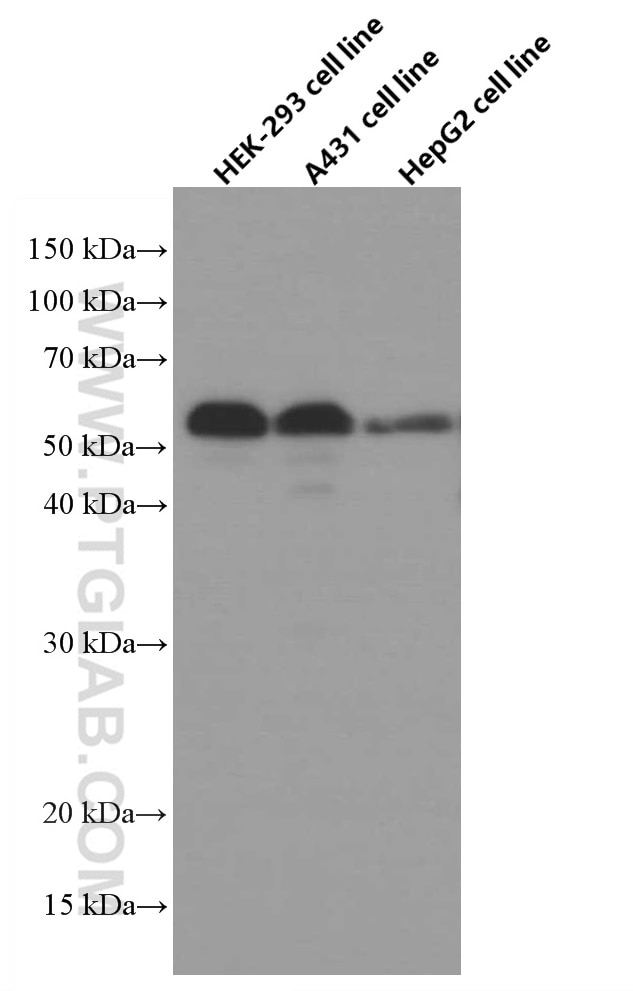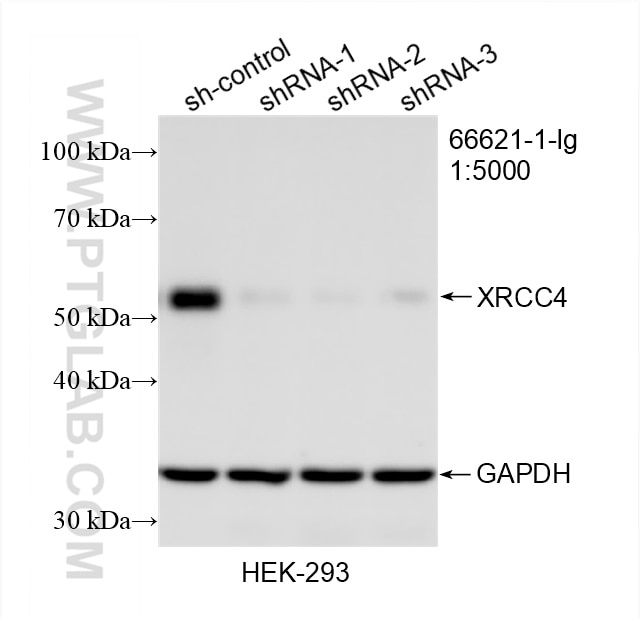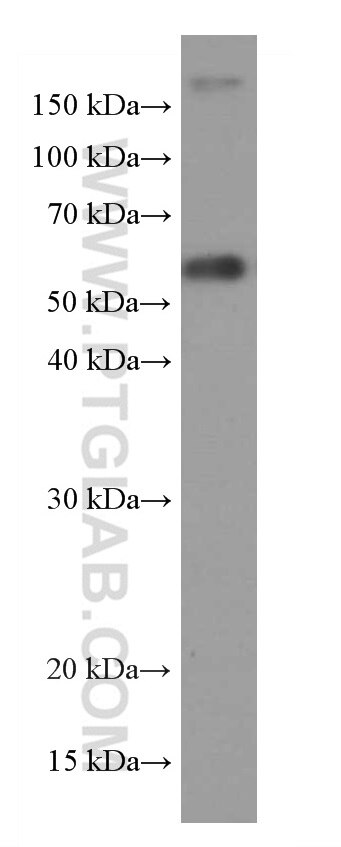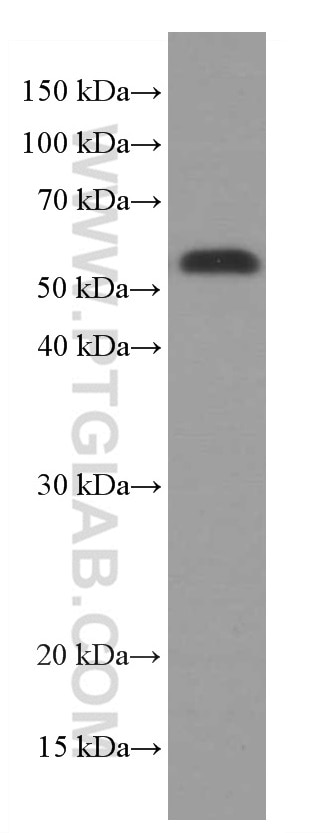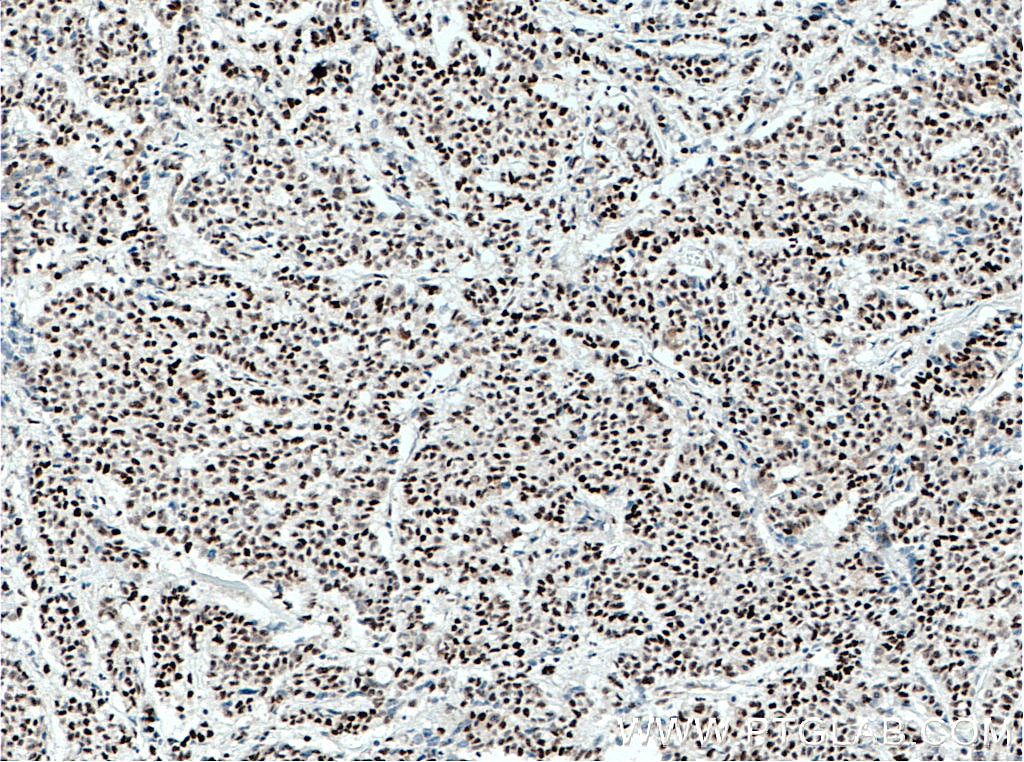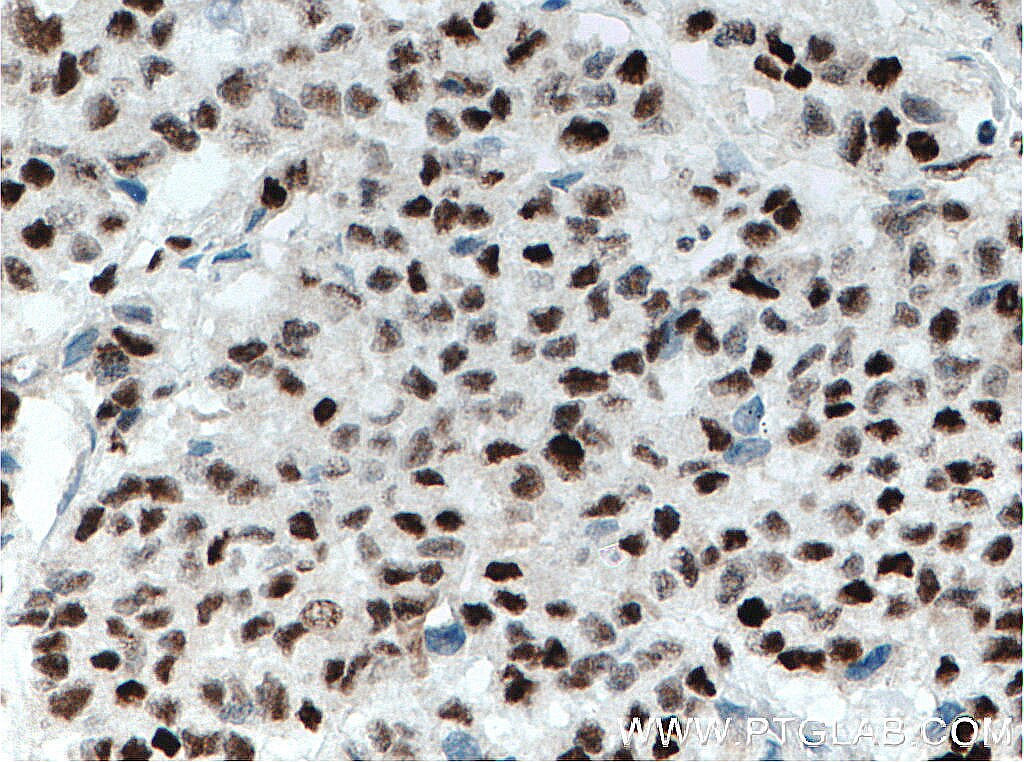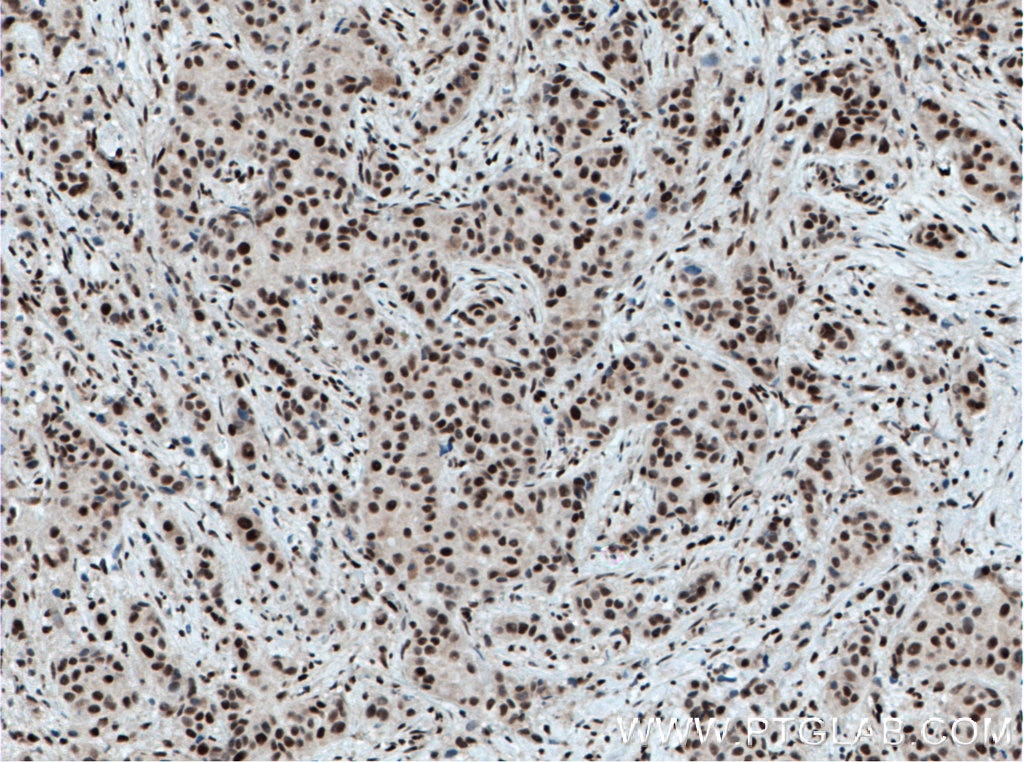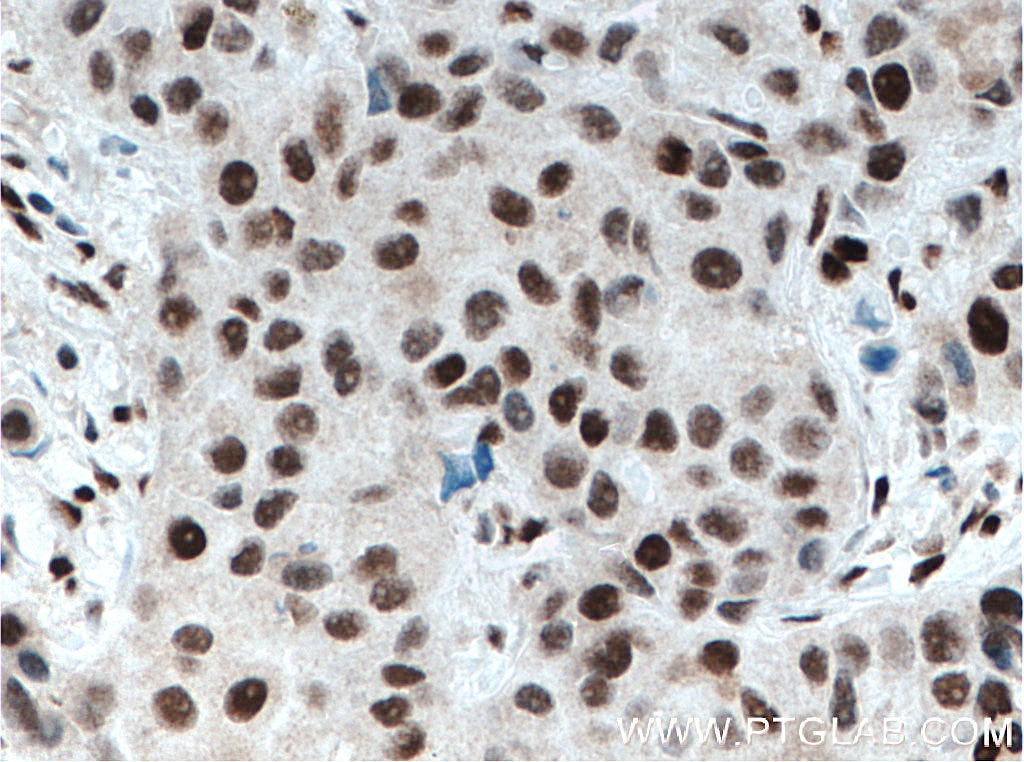- Featured Product
- KD/KO Validated
XRCC4 Monoclonal antibody
XRCC4 Monoclonal Antibody for WB, IHC, ELISA
Host / Isotype
Mouse / IgG2b
Reactivity
Human and More (1)
Applications
WB, IHC, ELISA
Conjugate
Unconjugated
CloneNo.
3E5D2
Cat no : 66621-1-Ig
Synonyms
Validation Data Gallery
Tested Applications
| Positive WB detected in | HEK-293 cells, COLO 320 cells, MCF-7 cells, A431 cells, HepG2 cells |
| Positive IHC detected in | human colon cancer tissue, human breast cancer tissue Note: suggested antigen retrieval with TE buffer pH 9.0; (*) Alternatively, antigen retrieval may be performed with citrate buffer pH 6.0 |
Recommended dilution
| Application | Dilution |
|---|---|
| Western Blot (WB) | WB : 1:1000-1:6000 |
| Immunohistochemistry (IHC) | IHC : 1:250-1:1000 |
| Sample-dependent, check data in validation data gallery | |
Published Applications
| KD/KO | See 1 publications below |
| WB | See 1 publications below |
Product Information
66621-1-Ig targets XRCC4 in WB, IHC, ELISA applications and shows reactivity with Human samples.
| Tested Reactivity | Human |
| Cited Reactivity | human |
| Host / Isotype | Mouse / IgG2b |
| Class | Monoclonal |
| Type | Antibody |
| Immunogen | XRCC4 fusion protein Ag8807 相同性解析による交差性が予測される生物種 |
| Full Name | X-ray repair complementing defective repair in Chinese hamster cells 4 |
| Calculated molecular weight | 310 aa, 35 kDa |
| Observed molecular weight | 55 kDa |
| GenBank accession number | BC005259 |
| Gene symbol | XRCC4 |
| Gene ID (NCBI) | 7518 |
| RRID | AB_2881981 |
| Conjugate | Unconjugated |
| Form | Liquid |
| Purification Method | Protein A purification |
| Storage Buffer | PBS with 0.02% sodium azide and 50% glycerol pH 7.3. |
| Storage Conditions | Store at -20°C. Stable for one year after shipment. Aliquoting is unnecessary for -20oC storage. |
Protocols
| Product Specific Protocols | |
|---|---|
| WB protocol for XRCC4 antibody 66621-1-Ig | Download protocol |
| IHC protocol for XRCC4 antibody 66621-1-Ig | Download protocol |
| Standard Protocols | |
|---|---|
| Click here to view our Standard Protocols |
Publications
| Species | Application | Title |
|---|---|---|
Immunity Cytoplasmic DNA sensing by KU complex in aged CD4+ T cell potentiates T cell activation and aging-related autoimmune inflammation.
|
